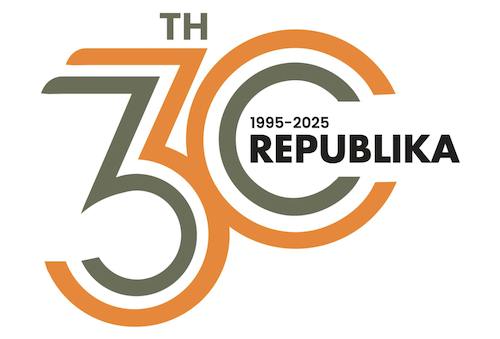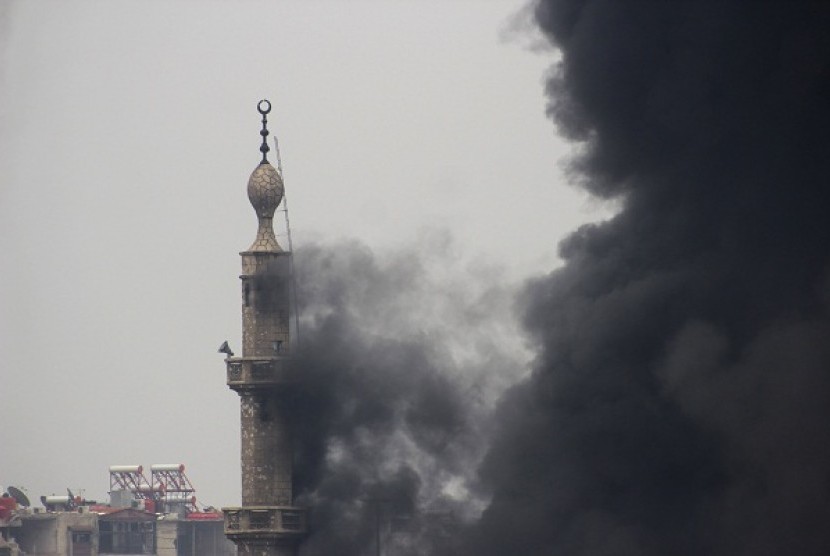REPUBLIKA.CO.ID, CAIRO - Leaders of Muslim nations called on Thursday for a "serious dialogue" between Syria's government and an opposition coalition on a political transition to end nearly two years of civil war, but pinned most of the blame for the bloodshed on the state.
A two-day summit of the 57-member Organisation of Islamic Cooperation backed an initiative by Egypt, Turkey, Iran and Saudi Arabia to broker negotiations to stop the fighting in which at least 60,000 people have died.
"We all agreed on the necessity to intensify work to put an end to the tragedies which the sisterly Syrian people are living through," Egyptian President Mohamed Mursi told the closing ceremony.
The final communique, issued hours after the summit ended because of last-minute wrangling over the wording, said President Bashar al-Assad's government was most to blame.
"We stress that the primary responsibility is on the Syrian government for the continuation of violence and destruction of property, and we express our deep concern at the deterioration of conditions and the spread of killings that led to the deaths of thousands of innocent civilians and the Syrian authorities' commission of massacres in cities and villages," it said.
The statement made no mention of Assad but called for talks between the opposition Syrian National Coalition and "representatives of the Syrian government who are committed to the political transformation of Syria and those who have not been involved directly in any form of oppression".
It also urged all other opposition groups to join the SNC. SNC leader Moaz Alkhatib made a surprise offer last weekend of talks with Assad's ceremonial deputy, Farouq al-Shara, on a transition that would guarantee Assad safe passage into exile.
The presidents of Egypt, Turkey and Iran met on the margins of the summit to discuss ways to support this initiative. Mursi said more details of their plan would be announced within days.
The secretary-general of the OIC, Ekmeleddin Ihsanoglu, said the initiative "focuses on the unity of the Syrian lands, comprehensive dialogue between the Syrian factions and responding to any country that wants to join in this dialogue".
Syria was not represented at the summit after it was suspended from the OIC last August, nor was the Syrian opposition present. Iran is one of Assad's last allies and President Mahmoud Ahmadinejad, making the first visit to Egypt by an Iranian leader since 1979, revelled in the opportunity to play mediator. The Iranians registered reservations about the communique, OIC officials said.
Syria silent
There has been no official response from Damascus to Alkhatib's offer, but fighting has intensified on the ground after a relative lull. It is unclear how much influence Alkhatib and his Cairo-based Syrian National Coalition, some members of which were surprised and angered by his offer, have on the rebels fighting inside Syria.
The opposition battled army units for control of districts of Damascus for a second day on Thursday, part of an opposition offensive which aims to shake Assad's hold on the capital, a rebel captain and opposition activists said.
Units of Assad's elite Republican Guard based on the imposing Qasioun Mountain overlooking the city fired artillery rounds and rockets at the eastern neighbourhood of Jobar and at the southern ring road, where opposition have overrun roadblocks and army positions, the sources said.
Assad, has lost control of large parts of the country but his forces, backed by air power, have so far kept opposition on the fringes of the capital. Many of the Islamic heads of state and government left Cairo on Wednesday after the first day of the summit, leaving their foreign ministers and diplomats to haggle over the communique.
In an interview with the BBC Arabic service, Alkhatib said the Syrian government had until Sunday to release all women detainees, otherwise he would regard his offer for dialogue as having been rejected by Assad. Alkhatib was quoted as saying that "the initiative would be broken" if the detainees were not released.
He also said the Damascus government was letting Iran make decisions for it and rejecting his proposal for dialogue with Shara, a Sunni Muslim former foreign minister who is not a member of Assad's Alawite-dominated inner circle of power.


